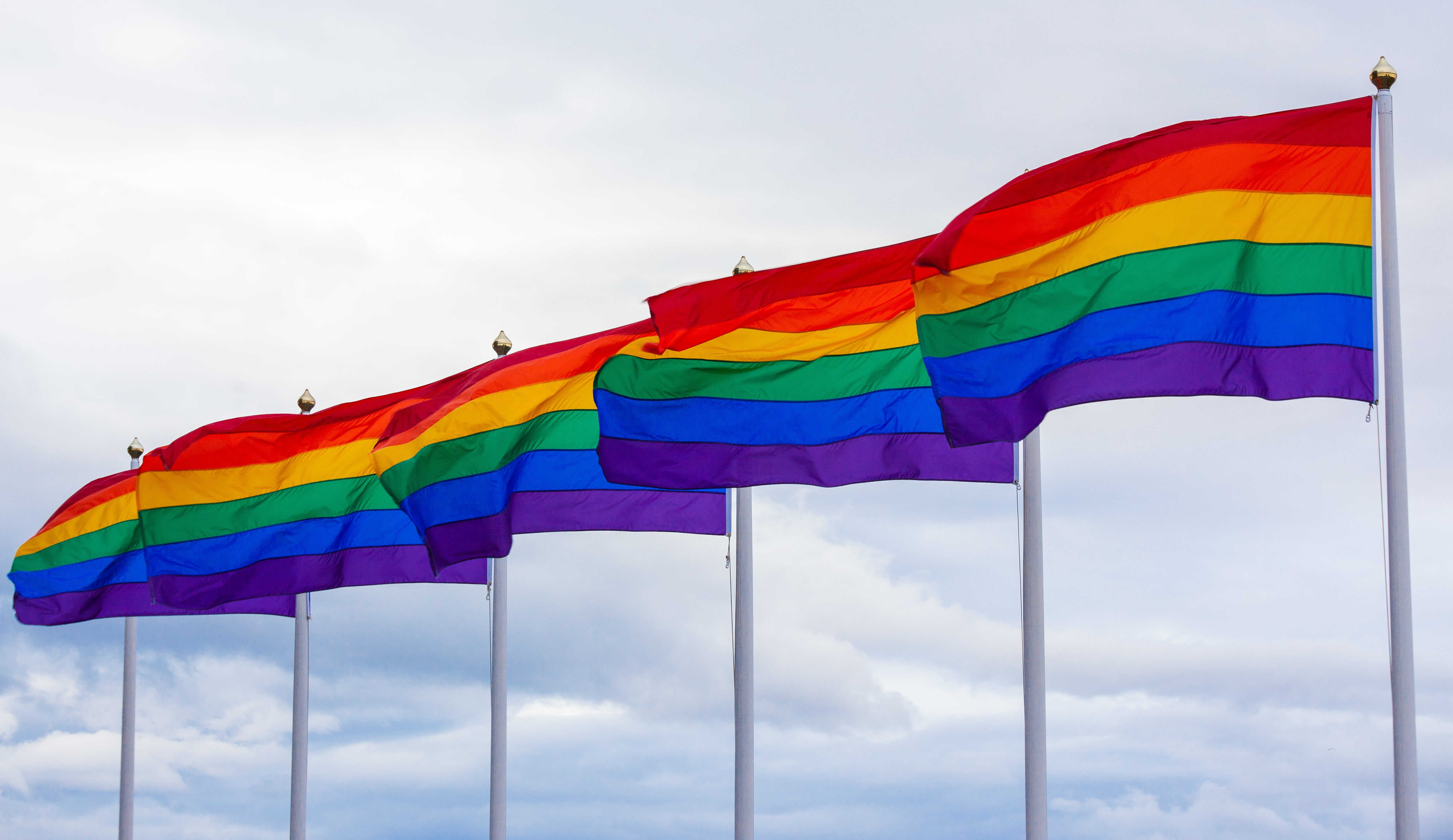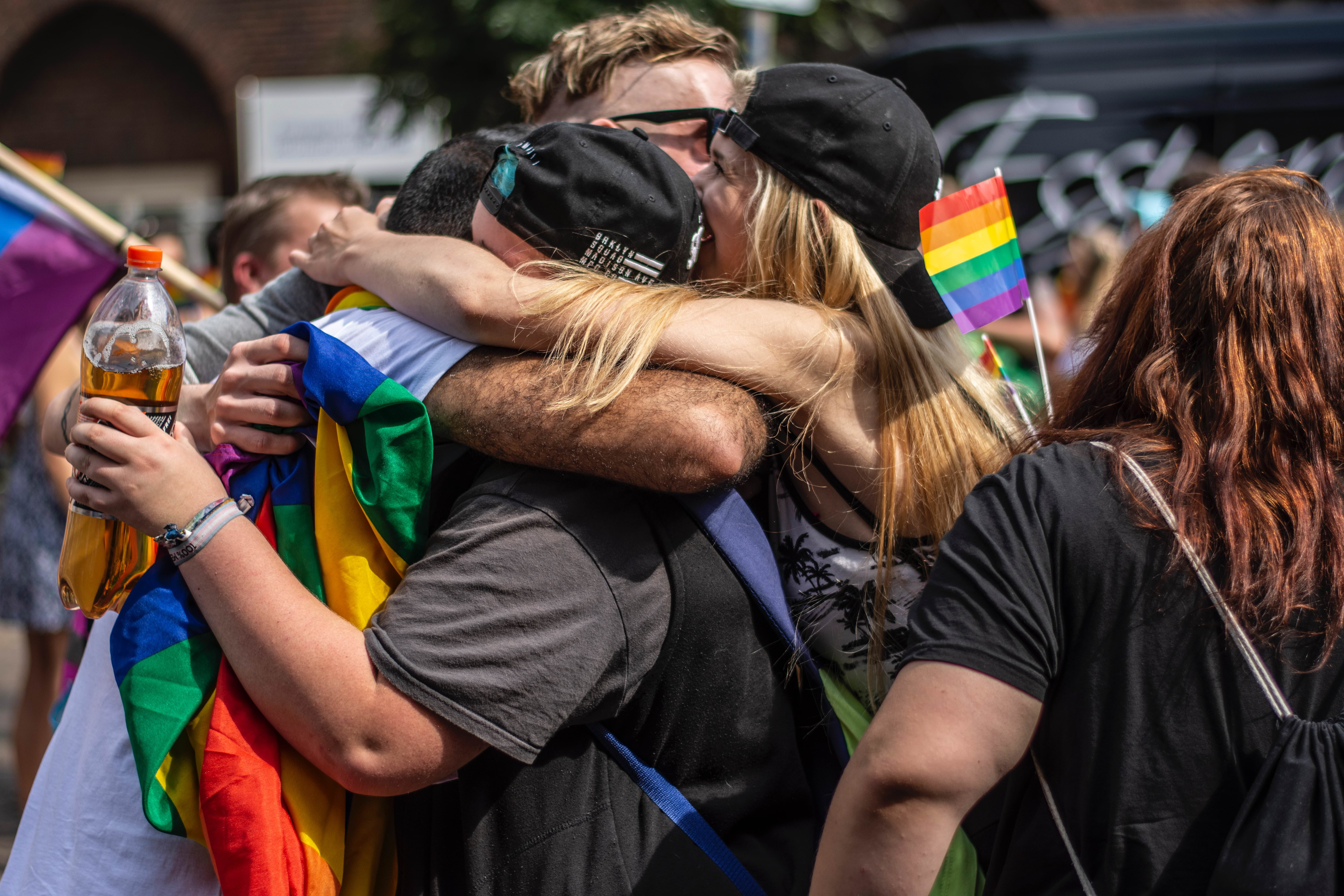LGBTQ+ Recovery Resources
According to the Recovery Research Institute, it is estimated that 30 percent of LGBTQ+ individuals face some form of addiction, compared with 9 percent of the general population. However, there is a lack of LGBTQ+ recovery resources.

Despite substance use disorders disproportionately affecting larger numbers of the LGBTQ+ community, recovery looks largely heteronormative. Both mutual aid meetings and online recovery communities are geared more to cisgendered and heterosexual individuals, making these spaces feel exclusive to many in the LGBTQ+ community. However, LGBTQ+ people represent 12 percent of Americans who have found recovery.
Recovery activist Brooke Feldman often raises the important issue of heterosexism within the addiction recovery community.
“With the risk of developing a substance use disorder as much as 20-30 percent higher for individuals who identify as LGBTQ+, it is baffling to me that heterosexism still pervades large pockets of the recovery communities,” she says.
“Heterosexual individuals are often unaware of the privilege they hold and what life is like for those without it,” Feldman says. “While for many folks, the idea of suggesting that ‘men stick with the men and women stick with the women’ seems to be sound advice, this suggestion totally discounts the reality of gender identity being far more than a binary of male or female. It also ignores the fact that sexual orientation actually exists on a vast and fluid spectrum that includes so much more than just a firm heterosexual.”
Why does substance use disorder affect more LGBTQ+ people?
People who identify as lesbian, bisexual, gay, trans, queer, intersex, or asexual and a myriad of other communities (LGBTQ+) are at a statistically higher risk of addiction because they face increased stigma, discrimination, and other challenges on a regular basis — such as healthcare inequalities, exclusionary governmental policies, social rejection, hate crimes, harassment, violence, and barriers to accessing quality housing, healthcare, and employment.
Facing these daily inequalities, prejudices, and homophobic behaviors can lead to coping with substances, while having less access to healthcare.
Socialization is a big factor, too. Many events within the community are largely focused around bars as a primary social outlet. Plus, alcohol advertising is geared toward the LGBTQ+ community, with the rainbow flag often used on popular alcohol branding.
Key facts:
According to the National Institute of Drug Abuse and the Recovery Research Institute:
- Gay, lesbian, and bisexual individuals are 18 percent more likely to have alcohol use disorder and 20 percent more likely to have substance use disorder.
- 77 percent of lesbian/gay/bisexual people and just 57 percent of those who identify as transgendered have access to healthcare.
- LGBTQ+ individuals are more likely to start drinking earlier and they have a greater likelihood of experiencing substance use disorder in their lifetime.
- There is a higher risk of co-occurring mental disorders such as depression, and higher chances of poor physical health, activity limitations, chronic conditions, obesity, smoking, and binge drinking in the LGBTQ+ community due to their adverse experiences and healthcare status.
- Transgender youth experience higher levels of depression, suicidality, self-harm, and eating disorders.
- Gay men are three times more likely as straight men to have an eating disorder, and lesbian and bisexual women are twice as likely as straight women to suffer with binge eating.
- People with co-occurring disorders are at a higher risk of fatal opioid overdose: this is 3 times higher for those with depression and six times higher for those with serious mental illness.

LGBTQ+ recovery resources
Given the unique characteristics and disparities that individuals face within the LGBTQ+ community, it is essential that we continue to expand queer-specific resources and be more accommodating in all recovery spaces. Below, we have listed specific resources for LGBTQ+ individuals as well as tips on how to be more inclusive in your recovery spaces.
LGBTQ+ specific resources
Across the nation, there are an increasing number of resources for people in the LGBTQ+ community. Many of them are city-specific. We have listed a range of online communities, social accounts to follow, gatherings and events, social spaces, and meetings that are available nationally.
While there are multiple pathways of recovery, each person will need an individual approach that deals with their unique needs.
Online communities: LGBTteetotalers, Queers Without Beers
Social media accounts to follow: Queer Introverts, The Temper, Tawny Lara, Liv’s Recovery Kitchen, Murphthejerk, Josh Hersh, Served Up Sober, Sober Hipster, Queer Sober Atlanta, SobrieteaParty
Queer gatherings and events: Gay & Sober, Queeret, Queer Soup Night, Queer Kentucky’s Monthly Meetup, Sober Queer Mixer
Sober spaces: There are many alcohol-free safe spaces for the LGBTQ+ community. Here are a few: Framingham GLASS in Massachusetts, Bookstore Giovanni’s Room in Philadelphia, Wicked Ground Kink Cafe and Boutique in San Francisco, Q Center and Grindhouse Coffee in Portland OR, Cuties in LA, Odd Fox Coffee in Brooklyn, Rainbow Bakery in Indiana, Squirrel Chops in Seattle, Mutiny Information Coffee in Denver, Comic Girl Coffee in North Carolina, Firestore in Asheville, and Lakeview Rewired Cafe in Chicago
Publications: The Temper
Meetings: Gay & Sober, LGBTQ Recovery Group (online), Gay and Lesbians in Alcoholics Anonymous. There are also numerous meetings in cities across the nation, just search for your city and “LGBTQ+ friendly recovery meeting.”
Podcasts: Queer Mental Condition, Breaking Free: Your Recovery. Your Way. Served Up Sober, and Recovery Rocks.
Inclusive spaces
Mutual-aid meetings are the most widely available free resource for those seeking recovery. However, given the language used and the sometimes limited awareness of the issues the LGBTQ+ community face, we have a way to go to provide a more inclusive space.
Tips for making your recovery space more LGBTQ+-inclusive
- Don’t assume an individual’s sexuality or their gender. State your own pronouns when you introduce yourself and encourage other group members to do the same, especially if they are cisgendered. For example: “I’m Liv. My pronouns are she, her, hers.”
- Don’t use heteronormative cliches like “men stick with the men and women with women.”
- Consider reviewing literature and change any gendered pronouns to neutral “they/them/theirs.”
- Be conscious of your privilege around access to healthcare, housing, and other facilities and resources. Don’t assume that everyone has the same opportunities.
- Advertise your group on the meeting schedule as LGBTQ+-affirming and don’t share images that are heteronormative or clearly gendered. Try to represent equity and inclusion in choosing images.
- Consider renaming bathrooms to be gender neutral.
- Don’t silence an individual’s experience relating to their sexuality and be mindful that they may have experienced prejudice and other harms as a result. These types of stressors are just as valid as any other.
- Educate yourself about trauma and practice holding a trauma-informed space.
- When holding meditations, give people the option of keeping their eyes open and moving around.
- Announce at the beginning of the meeting where the exits are, and make it clear that if anyone feels uncomfortable at any time they are free to take a time out and leave the room.
- Ask members to be conscious about sharing traumatic events and that they may be triggering for others.
- Consider holding a specific time during the meeting for people who find it hard to share.
Sources
NIDA (2017). Substance Use and SUDs in LGBT Populations. The Recovery Research Institute: LGBTQ+ & Recovery
Them: Sober Queer Spaces Are Giving LGBTQ+ People a Place to Just Be
Huffpost (2016) Brooke M Feldman, “Men Stick with the Men, Women Stick with the Women,” Hererosexism in the Addiction Recovery Communities.”
The Temper (2019) Tracy Murphy, “Josh Hersh is Creating Sober Spaces For Queer Introverts.“
